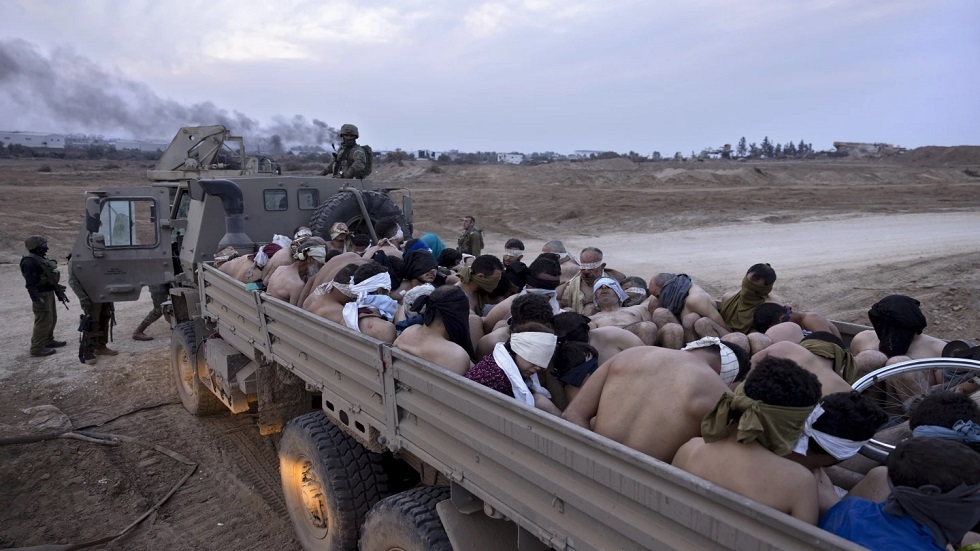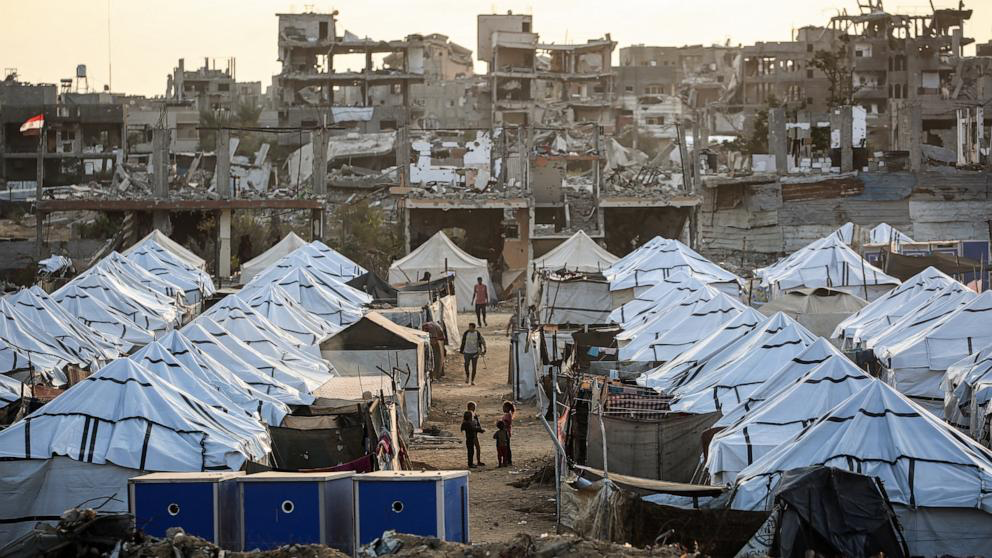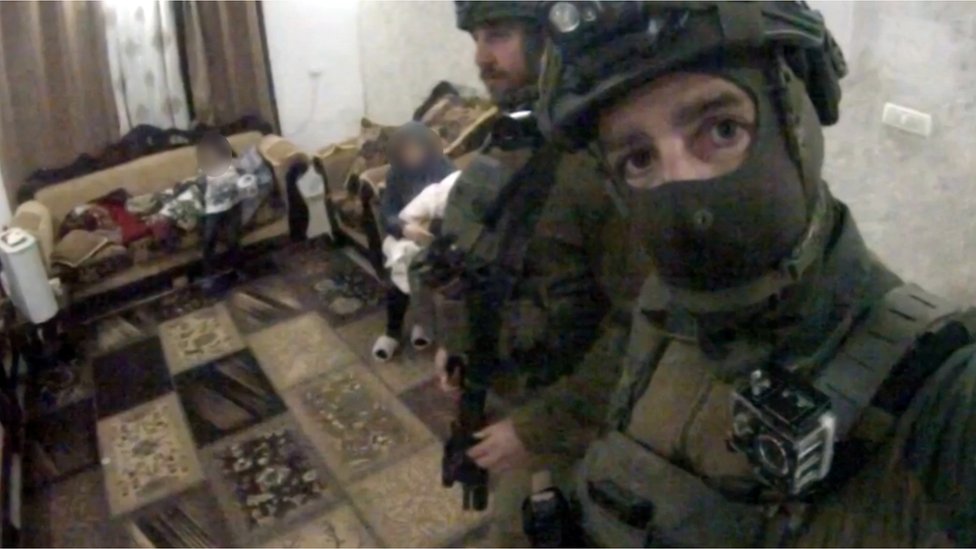Gaza (QNN)- The Palestinian Center for Prisoners’ Defense said it documented a new testimony from a freed hostage who witnessed two killings and a rape inside Israel’s Sde Teiman detention camp. The center continues to gather evidence of systematic abuses against Palestinian detainees and hostages, which it says rise to the level of war crimes.
The testimony comes from Musab Madoukh. Israeli forces kidnapped him on March 18, 2024, inside Al‑Shifa Hospital in Gaza. He had sought refuge there after losing his mother, wife, children, and home in Israeli strikes. He says soldiers stormed the hospital with heavy fire, surrounded the buildings, and forced everyone outside.
Madoukh said troops stripped detainees, beat them, filmed them, and interrogated them while drones hovered overhead. Soldiers assigned each detainee a number and ordered them to respond only to that number. He said male and female soldiers insulted their families and sexually harassed hostages.
He described transfers in trucks under freezing rain. Elderly hostages struggled to climb inside, and soldiers threw them into the vehicles. Madoukh said hostages stayed blindfolded, tied, and barred from speaking. Anyone who asked to use the bathroom or asked for water was beaten.
At the next stop, soldiers gave the hostages thin mats and wet, foul‑smelling blankets. Then soldiers brought attack dogs into the room. Madoukh said soldiers beat hostages until blood came from their faces and mouths. He suffered a broken rib. He described the beating as “a violent party,” meant to cause lasting injuries.
Madoukh said they later learned they were inside the “barracks” area of Sde Teiman. Guards forced them to kneel for long hours with hands behind their backs. Punishment raids took place twice a week with increasing brutality.
He recounted the death of a hostage named Abu Abdullah Kamel Radi. Radi returned from interrogation unable to stand or eat. Madoukh tried to feed him. Radi collapsed and died minutes later. Guards ordered the hostages to place his body at the door before a special team removed it.
In another incident, soldiers sent dogs to attack hostage Islam Al‑Sarsawi. The dogs bit him repeatedly as soldiers laughed. Al‑Sarsawi bled heavily and received no treatment. He died two days later, raising his finger for the shahada before his death. Guards then changed shifts, as they did after the previous killing.
Madoukh said soldiers used toxic gas daily. Any movement, any raised voice, or any attempt to adjust the blindfold triggered punishment. After three months, hostages were moved to Ofer military prison. Conditions there also included constant restraints, cameras pointed at them, bans on prayer, and hourly beatings through the door hatch.
Less than a month later, the army returned Madoukh and others to Sde Teiman. He described one of the most severe incidents. Soldiers called three hostages, including him, into one of the barracks. They beat one detainee, stripped him, and sexually assaulted him with a metal rod. Madoukh said the assault amounted to rape and happened in front of the others. Soldiers then beat him again in the same areas where he had fractures. The third hostage was electrocuted repeatedly until he passed out.



